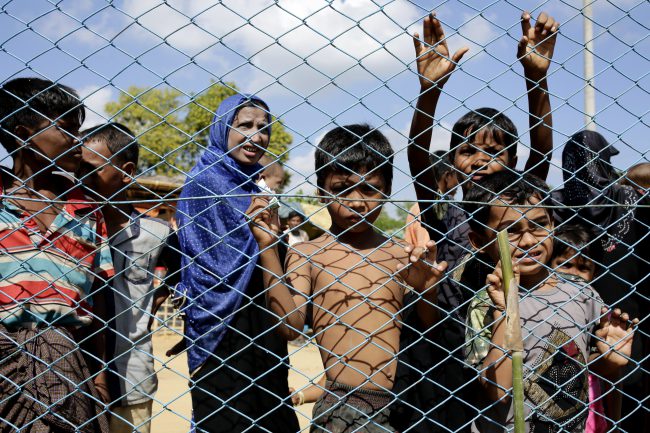Foreign Affairs Minister Chrystia Freeland slapped new sanctions on one of the senior members of Myanmar‘s military for his role in the brutal attacks that have forced more than half a million Rohingya to flee the country since last summer.

In a press release sent out on Friday, Freeland said Maj.-Gen. Maung Maung Soe will no longer be allowed to set foot in Canada and that any assets of his in Canada will be frozen under the Justice for Victims of Corrupt Foreign Officials Act, passed in October 2017.
READ MORE: Venezuelan president among 52 people sanctioned for human rights violations
Anyone in Canada or any Canadians outside of Canada will also be prohibited from having any dealings with property held by him, providing any financial or related services to him, or having or facilitating any financial transaction with him as well as making available any property to him.
“Canada will not stand by silently as crimes against humanity are committed against the Rohingya,” said Freeland in a statement.

Get breaking National news
“We stand in solidarity with the Rohingya people and other ethnic minorities as they struggle to see their rights respected. Myanmar’s military and civilian leaders have an obligation to respect the human rights of all people and those responsible for these atrocities must be held to account.”

WATCH ABOVE: Rohingya women tell of Myanmar military’s alleged rape
The Rohingya are a Muslim ethnic minority in Myanmar and more than 688,000 have been forced from their homes since last summer after the Myanmar military began a brutal campaign of murder and rape which the United Nations has described as ethnic cleansing.
The crackdown started several weeks after attacks by Rohingya militants on military security posts last summer.
READ MORE: ‘Ethnic cleansing’ against Rohingya in Myanmar should be classified genocide: scholar
Currently, there are roughly 52 other individuals to whom the Canadian government has applied the same sanctions.
Those individuals are officials from Russia, South Sudan and Venezuela suspected of corruption and human rights violations as laid out under the terms of the legislation, often referred to as the Magnitsky Act.
Sergei Magnitsky was a Russian whistleblower who accused officials in that country of being involved in a $230-million tax fraud scheme.
He was imprisoned in Moscow and died in 2009, allegedly after having been beaten and tortured.








Comments
Want to discuss? Please read our Commenting Policy first.